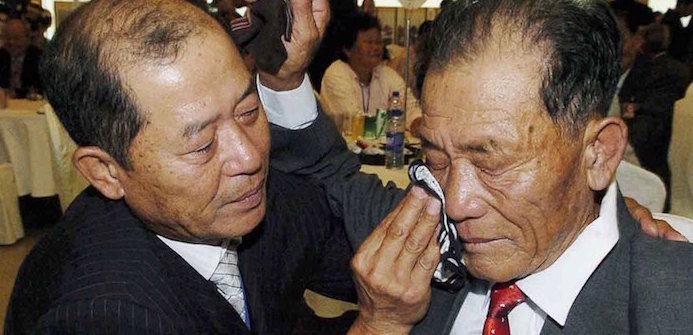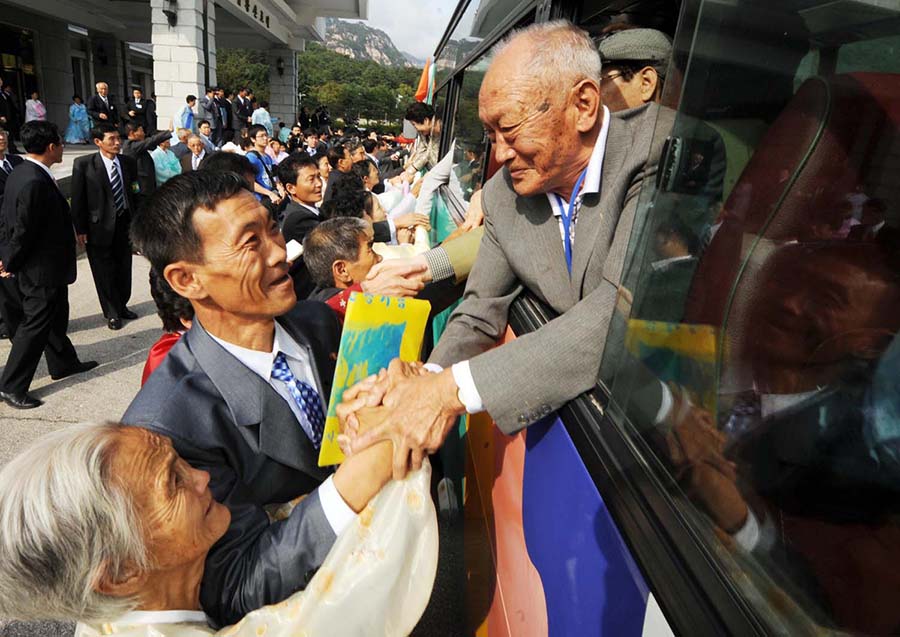
The Human Costs of Korean Division
The division of the Korean peninsula continues to incur definitive political, social, and economic costs. The human costs of division, however, are often forgotten. A recent story in Public Radio International (PRI) details the pain associated with division for individuals separated from their homeland for more than 60 years. Families separated in North and South Korea during and after the Korean War also represent the human cost of division. Due to the restricted nature of contact with North Korean citizens, separated family members are only permitted to officially meet through special reunions pre-arranged by the two governments. Since 2000, the ROK Ministry of Unification estimates that 23,519 persons from 4,677 families have been reunited through either in-person meetings or video reunions.
Many of these families have been separated for nearly six decades and time is not on their side. As of December 31, 2015, there were 130,808 persons registered in the ROK Ministry of Unification’s separated families database. Unfortunately, nearly half of these family members (or 65,134 persons) had already passed away by the end of 2015. The last official reunion was held in October 2015, but the suspension of these meetings, and the tense relationship between North and South Korea, make it uncertain whether the 65,674 survivors in South Korea will be able to meet their family members in the North.
However, even if given the rare chance to meet relatives located on the other side of the 38th parallel, family members still live with tremendous pain. As recounted in a recent United Nations report, one family member who participated in the October 2015 family reunion stated:
On the way back to Seoul, I sat on the bus and I felt so sad that I could not speak a word. I had to be taken to the hospital for three days. The sadness of that moment of second separation is not imaginable to those who have not experienced it.
These official reunions are not just limited by politics they are also limited by geography and citizenship. If family members are not currently residents of South Korea and not registered in the South Korean separated family database, they are not eligible to participate in these family reunions.

For thousands of separated family members who live in other countries like the United States, this often leaves them without recourse to meet their relatives in the North. However, a concurrent resolution passed in the 114th U.S. Congress seeks to change this. The resolution titled “Encouraging Reunions of Divided Korean American Families“ encourages the North Korean government to allow separated family members living in the U.S. to meet with their relatives in North Korea. It also calls on North North to engage in concrete actions that will build goodwill and further peace on the Korean peninsula. While North Korea has not reacted well to this resolution, and it does not currently have the force of law, there is hope that it will be a tool to bring much needed attention to this issue.
File "/nas/content/staging/korea/wp-content/uploads/2017/01/Separated-Families_Exchange-Statistics.xlsx" does not exist.

[carousel-horizontal-posts-content-slider-pro id='113']